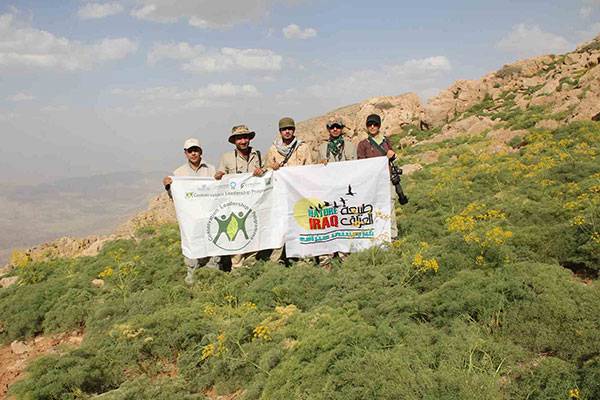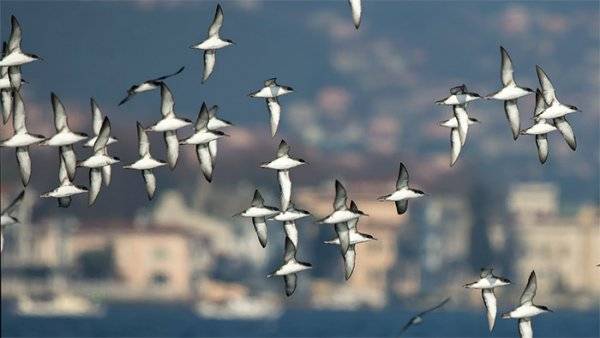Guest blog by Guy Shorrock
An opinion piece on illegal bird killing in Cyprus by Guy Shorrock, a former UK police officer and a wildlife crime investigator for the RSPB (BirdLife in the UK).
Unsurprisingly, the hunting and trapping of migrant birds is rooted deep in the historical culture of the island. The local dish of Ambelopoulia, consisting of blackcaps and other songbirds, was originally a food supplement. However, bird trapping is no longer about tradition and has become widespread, driven by profit and involving organised crime. This is to fuel the continuing illegal demand for the dish, with diners prepared to pay €80 or more for a plate of a dozen birds.
I have worked for the RSPB, the UK BirdLife partner, on wildlife crime for over 30 years and first visited Cyprus in 2000. Since then, I have made many visits to help BirdLife Cyprus tackle the illegal trapping and killing of migrant birds. The Committee Against Bird Slaughter (CABS) and their dedicated team of volunteers have also been highly active in Cyprus for over a decade locating and reporting illegal trapping and shooting sites.
Most of my work has been in the UK Eastern Sovereign Base Area (ESBA), along with time at other trapping and shooting hotspots in Cyprus. In 2016, I helped set up a program of covert surveillance on the ESBA and, with the zero-tolerance enforcement by the SBA authorities, it has been highly encouraging to see the levels of bird trapping have been massively reduced. In other parts of Cyprus, it is clear more serious problems with illegal bird killing continue.
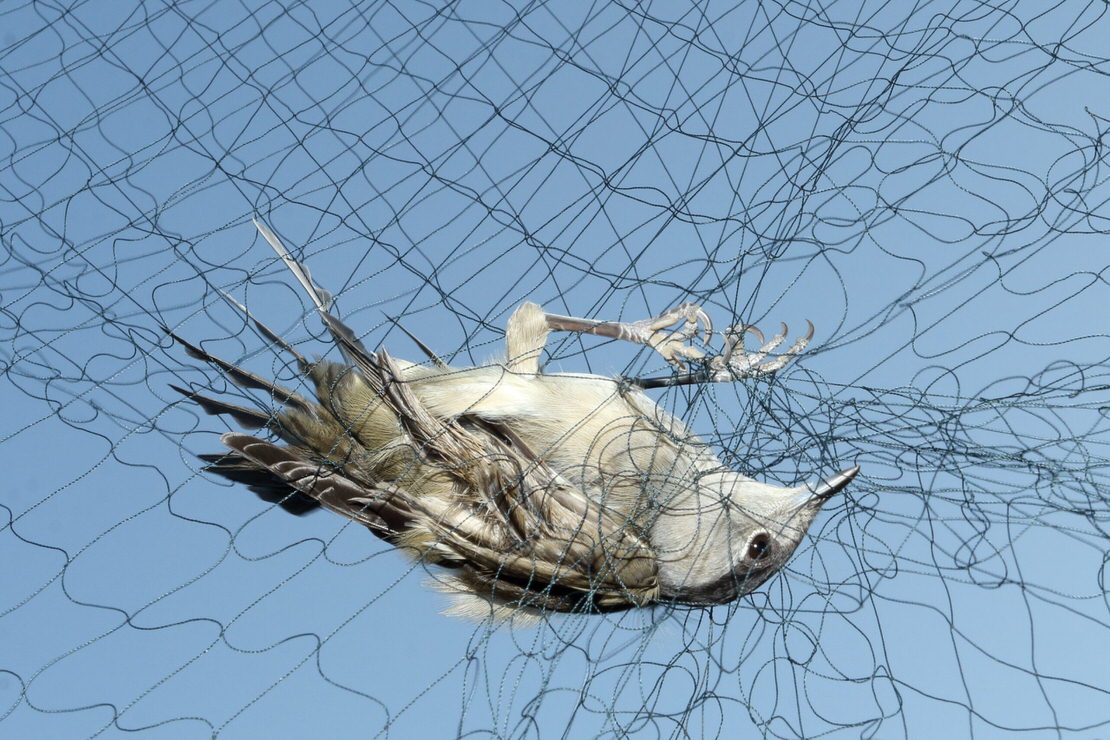
In autumn 2022, I again visited Cyprus with a colleague to assist BirdLife Cyprus and the SBA authorities. We made several visits to an area by Lake Soros at Meneou, which is part of the important Larnaka salt lake wetlands. This is a notorious spot for the illegal shooting of migrant birds with further concerns about high concentrations of lead in Lake Soros itself. The issue is so blatant and persistent it is difficult to understand how the Cypriot authorities have not been able to make more progress to reduce illegal bird killing at this site. This year, working with BirdLife Cyprus and CABS, we picked up a further depressing catalogue of victims – including numerous shot bee-eaters, a roller, a golden oriole and a hobby. Understandably, BirdLife Cyprus and CABS have again called upon the Minister of the Interior and the Game Service to prohibit hunting activity in this area.
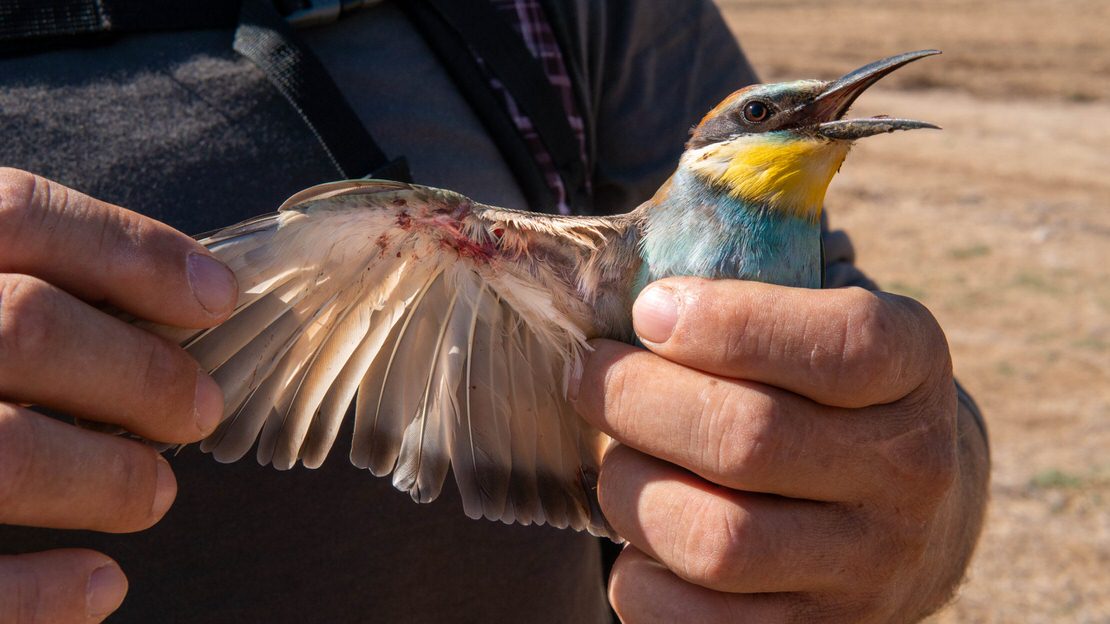
At the end of the work this autumn, for the first time I stayed on for a one-week bird watching holiday and met up with four long-term friends, who came over from the UK. I have no doubt most holiday makers remain blissfully unaware of the large-scale illegal trapping and shooting on the island, though I have found these activities taking place only a short walk from some popular tourist destinations. Whilst my friends are all aware of these issues, it was clear their minds were firmly focussed on birdwatching and hoping to see several new species. For me, it was a little surreal to switch from my daily work of dealing with bird killing to joining this holiday group.
We were having a really great time, good weather, good food, plenty of birds and I finally saw the elusive Cyprus scops owl, one of three endemic birds on the island. Unfortunately, it seems the harsh reality of bird killing is never far away in Cyprus and near the end of the week we visited a popular birdwatching spot at Achna Reservoir near Avgorou, in the south-east of the island. As we walked around the shore, one of my friends drew our attention to a bird running along the ground dragging both wings on the floor. After a few moments we realised this pitiful specimen was a very rare (and globally threatened) black-winged pratincole. There is typically only one record of this migrant on the island each year; I had only seen this species twice before and two of my friends had never seen any. However, there was no elation for anyone in finding this particular bird.
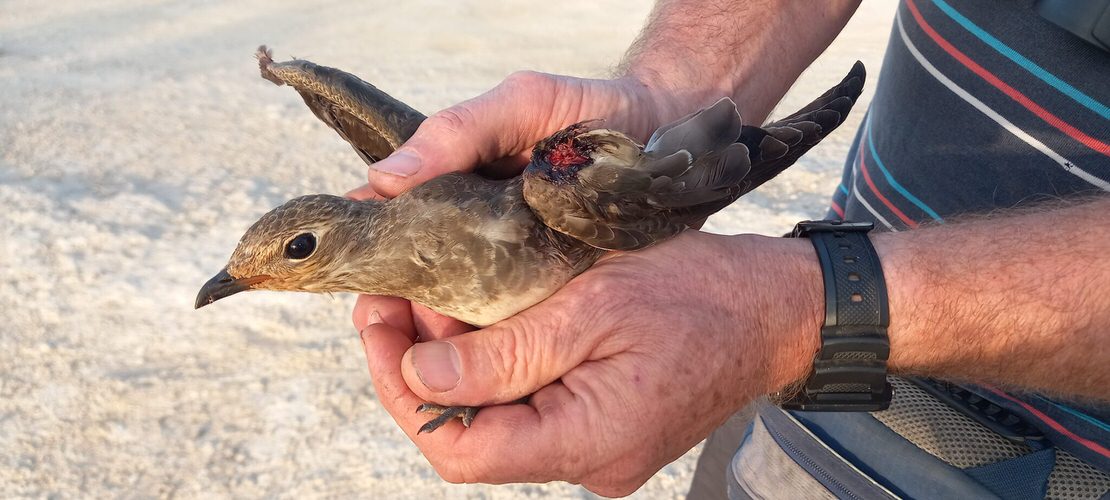
We were able to catch the poor bird, which had sustained serious shot injuries to both wings. Unable to fly, it had no doubt been shot nearby and I understand there have been regular problems of illegal shooting at this site. Over the decades I have handled many birds which have been illegally killed or injured. Sometimes the injuries have been so severe that it has been necessary to euthanise the birds. Whilst these events are never pleasant, there is no doubt this familiarity does desensitise you from the grim reality. For myself this was a familiar scenario, and once again I found myself having to euthanise a beautiful bird which somebody had callously shot just for sport. As for my friends, well they were just on the island as tourists. So, this shocking event came as a sudden and harsh reality check of the darker side of Cyprus and a very sad end to our holiday. This mindless killing of protected birds will continue to portray Cyprus and other Mediterranean countries in a very negative light.
Ultimately, wildlife criminals are like criminals everywhere, they exploit weakness. Weakness in people prepared to buy their goods, weakness in the law and weakness in enforcement. But most of all they exploit weakness in political will to tackle the problem and make such behaviour socially unacceptable. This year I was fortunate to attend the opening of a collaborative exhibition called Kochinohoma (Red Soil) at the AG Leventis Gallery in Nicosia. This presented the illegal killing of migratory birds in Cyprus in an imaginative and thought-provoking way. Hopefully these sorts of artistic and educational projects will help increase awareness and encourage a change in attitude of political decision makers. This will be vital if the fortunes of the millions of birds crossing Cyprus each year are to be improved.
Guy Shorrock, a former UK police officer, joined the Royal Society for the Protection of Birds (RSPB) as a wildlife crime investigator in 1991. For over 30 years he has worked on the illegal killing and trade in wildlife assisting the authorities to bring many cases to court. Having recently retired, he now works as a volunteer to support environmental work in the UK and Cyprus. He has been out to Cyprus, to support BirdLife Cyprus in the anti-bird-killing effort, no fewer than ten occasions.

